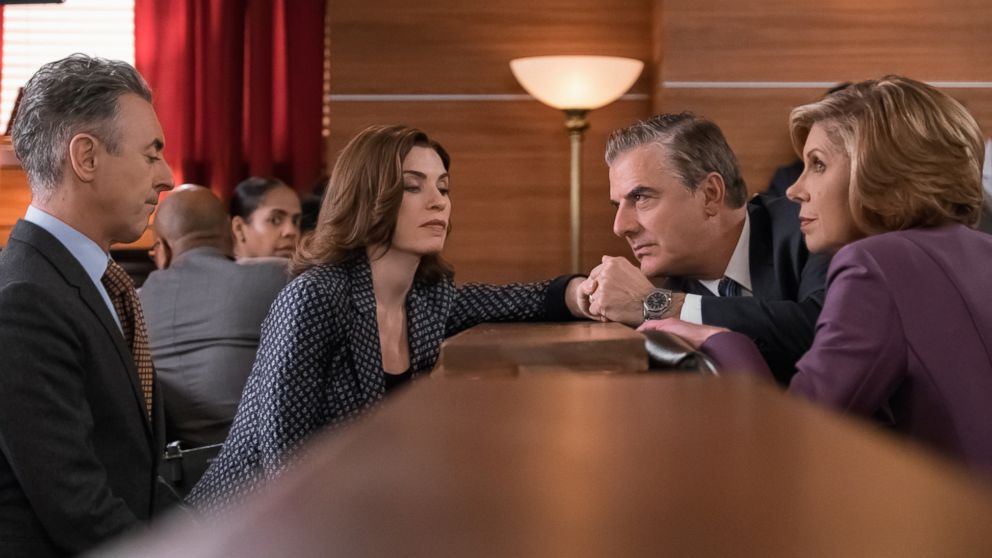'The Good Wife' Creators Explain Finale
"The show would start with a slap and end with a slap," the creators said.

— -- Spoilers Ahead!
"The Good Wife" creators took to Twitter and CBS.com to explain that series finale on Sunday night and say "Goodbye."
"Thank you for an extraordinary seven seasons of support, encouragement, and commitment to The Good Wife. To say that we could not have done this without you is an understatement," an open letter from Robert and Michelle King began.
The series spanned more than 150 episodes and the creators explained that early on, they devised, "a vanishing point we could write toward."
"That structure, in our minds, was simple. The show would start with a slap and end with a slap. Each slap would involve Alicia. This would be the bookend. She would slap someone who victimized her at the beginning of the series; and she would be slapped by someone she 'victimized' at the end," they added.
The Kings were explaining how the ending for Julianna Margulies's Alicia Florrick wasn't a happy one, as she double-crossed Christine Baranski's Diane in court, followed by a slap from the woman she betrayed.
"Even her decision in this last episode -- the one that resulted in Diane being hurt -- came out of her parental need to keep Grace from following in her path. She didn't want Grace to put her future on hold in order to stand by Peter," they continued. "But together all these decisions, legitimate as they were, added up to a character who was becoming more desensitized to her impact. She was becoming more and more like her husband, and, ultimately, Diane was the collateral damage."
They believed that this handling of the arc of the show, of Alicia becoming the aggressor mirrored life more than other mediums.
"That's why we ended the series the way we did. Alicia is no longer a victim of politics. She is someone who takes charge, someone who controls the agenda," they wrote. "But it also changed her. Ironically, at the exact moment she found the power to leave Peter, she realized she had become Peter. ... Yes, Alicia's story contains tragedy. We still love her. And we hope you do too. The ending is supposed to be unsettling. But we don't think characters need to avoid tragedy to be embraced."
They also touched on how a slap began the series and another ended it, and how the first episode brilliantly tied into the last.
"The two slaps to our mind are chapter endings and headings. If the slap that started the series woke Alicia up -- helped her overcome her naivety about her husband and the world's corruption -- then this second slap wakes her up to her own culpability. The question is what will she do with that?" they added.
For full explanation, watch more below:




